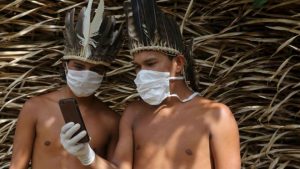Cover photo: Cesar von Bancels / AFP
A seroprevalence study carried out in the city of Iquitos would indicate that 7 out of 10 people contracted COVID-19 disease.

The press release published in the official Facebook account of the Loreto Regional Health Directorate indicated that the official results of the seroprevalence study of SARS-CoV-2 antibodies carried out in Iquitos were presented today. The study was carried out between July 13-18 in a population sample measuring the level of the virus in the blood serum.
The results would indicate that 71% of the population in Iquitos contracted the disease. If the margin of error of the study is reliable, one would also be talking about possible herd immunity. The Johns Hopkins Bloomberg School of Public Health states that for a population to have herd immunity, it must reach between 70% to 90% of those infected, but this could be better asserted with a local census.

But the real discussion stems from the ethical issue. Herd immunity refers to the point at which a population has developed protection against disease, but to reach that percentage, thousands of inhabitants would have to die. And since not much is known yet about the nature of the virus, having herd immunity still doesn’t guarantee long-term protection.

Other results show that 22% of the population of Iquiteños are still infected. Related to age, the most affected were those under 20 years old with 76% cases, followed by adults between 40 and 59 years old and adults over 60 years old, each with 71% and 70% respectively. In terms of biological gender, women appeared to be the most infected reaching 73% of infections compared to 58% of infected men.
The study was carried out by the Faculty of Human Medicine of the University of the Peruvian Amazon, University of Engineering and Technology and the Pan American Health Organization.
Because there is still a considerable number of inhabitants in Iquitos susceptible to contagion, DIRESA-Loreto urges the population to maintain the rules of social distancing, hand washing, and use of face masks.
The Peruvian Ministry of Health has organized a group of brigades to continue seroprevalence studies in other cities in Peru such as Lima, Piura, Lambayeque, and La Libertad.
Iquitos was one of the cities most affected by the disease when the pandemic reached Peru, due to the saturation of its health system last May, added to this the lack of oxygen, even having to install beds in other centers like restaurants.
